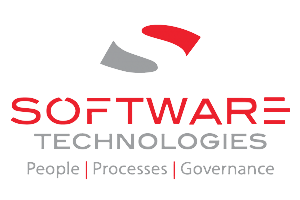
The success of any organization heavily relies on its ability to attract and retain top talent. One often overlooked yet crucial aspect of this process is employee onboarding. The first few days, weeks, and months in a new job can significantly shape an employee’s experience and long-term commitment to the organization. Did you know that effective onboarding can increase employee retention by a staggering 82%? In this blog post, we’ll delve into the importance of onboarding and how it can be a game-changer for organizational success.
Understanding the Onboarding Process:
Onboarding is more than just a paperwork ritual; it’s a strategic process designed to integrate new hires into the organizational culture, values, and workflows. An effective onboarding program goes beyond a brief introduction to company policies and a tour of the office. It encompasses comprehensive training, mentorship, and a welcoming environment that sets the tone for a positive employee experience.
Key Elements of Effective Onboarding:
- Clear Expectations: Providing new hires with a clear understanding of their roles and responsibilities is essential. A well-defined job description and realistic expectations ensure that employees feel equipped to meet their job requirements.
- Structured Training Programs: A structured training program helps employees gain the skills and knowledge necessary for their roles. Whether it’s technical skills, company processes, or soft skills, a thorough training program sets the foundation for success.
- Mentorship and Buddy Systems: Assigning mentors or buddies to new employees helps them navigate the organization more smoothly. Having a go-to person for questions and support fosters a sense of belonging and accelerates the integration process.
- Social Integration: Building strong interpersonal connections is crucial for employee satisfaction and retention. Social events, team-building activities, and introductions to colleagues create a positive and inclusive work environment.
- Feedback and Evaluation: Regular check-ins and feedback sessions during the onboarding process allow organizations to address any concerns promptly. This open communication ensures that employees feel valued and supported.
The Impact on Employee Retention:
- Increased Engagement: Effective onboarding engages employees from day one, making them feel like valuable contributors to the organization. This positive experience significantly impacts their job satisfaction and commitment.
- Faster Time to Productivity: Well-trained and properly onboarded employees are more likely to become productive quickly. This not only benefits the individual but also contributes to the overall efficiency of the team and organization.
- Positive Organizational Culture: Onboarding programs that focus on cultural assimilation contribute to a positive workplace culture. Employees who feel aligned with the organization’s values are more likely to stay and thrive.
- Reduced Turnover Costs: High turnover can be costly for organizations in terms of recruitment, training, and lost productivity. Investing in effective onboarding programs is a proactive measure to mitigate these costs.
In conclusion, effective onboarding is a powerful tool that directly influences employee retention. Organizations that prioritize a comprehensive onboarding process reap the benefits of increased engagement, faster productivity, and a positive workplace culture. By investing in the success and satisfaction of new hires, companies can position themselves for long-term success in an increasingly competitive talent market. After all, an 82% increase in employee retention is not just a statistic; it’s a testament to the transformative impact of a well-executed onboarding strategy.
